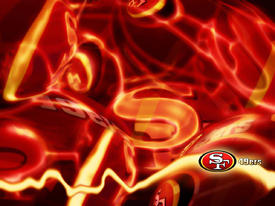We are pleased to announce that as of March 4, 2025, an updated Rich Text Editor has been introduced in the MyFitnessPal Community. To learn more about the changes, please click here. We look forward to sharing this new feature with you!
Japanese Food?

AffableKitsune
Posts: 2 Member
I know this sounds rather specific but I used to love making homemade Japanese (and Irish food but i'll tackle that later) and home. Now that I am trying to eat healthier I have no idea how to turn that around but still enjoy Japanese recipes at home.
--Japanese--
1) How bad is soy sauce? It's used in nearly all of their recipes. I know I can get low-sodium but what else about it?
2) Mirin? It's a sweet rice wine that's used in cooking and it really makes a dish taste great. Is it okay?
3) I'm pretty sure miso paste (red, white, and mixed) is still good although probably high in salt I think. Just wanted some info for this. I love making miso soup and using these on food.
4) I know it's hard to get a lot of the "authentic' vegetables and stuff and I can only get daikon at my store and Japanese eggplant if I grow it myself. Should I grow the other items or is there a good substitute for them to get all the nutrients I need?
Any other information you are willing to add I would appreciate! Oh and I don't only make Japanese food. I just go on a Japanese food kick for like a week straight (happens with other types to).
--Japanese--
1) How bad is soy sauce? It's used in nearly all of their recipes. I know I can get low-sodium but what else about it?
2) Mirin? It's a sweet rice wine that's used in cooking and it really makes a dish taste great. Is it okay?
3) I'm pretty sure miso paste (red, white, and mixed) is still good although probably high in salt I think. Just wanted some info for this. I love making miso soup and using these on food.
4) I know it's hard to get a lot of the "authentic' vegetables and stuff and I can only get daikon at my store and Japanese eggplant if I grow it myself. Should I grow the other items or is there a good substitute for them to get all the nutrients I need?
Any other information you are willing to add I would appreciate! Oh and I don't only make Japanese food. I just go on a Japanese food kick for like a week straight (happens with other types to).
0
Replies
-
Just some ramblings because while your question seems specific, it is also vastly vague.
Most of your questions have to deal with the sodium content of said condiments typically used in Japanese food. Notice I said condiments to get you thinking that it is up to you on how much or how little you deem to use. There is nothing unhealthy about most any food item until you over-consume said items (I can make the over-consumption argument for water). If you have some health issue that is exacerbated by too much sodium, then you can look for lower sodium options along with scaling back on its overall use to address.
Concerning #4, if attaining produce is a issue, then just use what is available to you. Just like I don't live in Africa, where certain vegetable and fruit species exist, I cannot expect to truly "experience" African cuisine unless I travel to Africa. Could I possibly find those in a specialty market? Sure, but what are you truly after? Satisfying a taste experience or satisfying a nutrient requirement. If its the latter like you mentioned, then you are majorly over thinking and complicating this. I.e... the nutrient profile between a western grown radish and a Japanese grown Daikon radish is, I would guess, virtually identical, or shiso leaves which are a close relative to basil and mint, so nutritionally, probably about the same. Will is have the same taste? no, but again, your question was about nutrients. At the end of the day, just eating a minimum of varied fruits and vegetables in your diet will get you all the needed micronutrients and phytonutrients needed (assuming you are not deficient due to some other health related issue).
Lastly, from a "10000' view of health" when it comes to nutrition, the greatest impact one can do for health, is be at a healthy weight. Body weight is dictated by calorie balance. All other aspects like food quality, macronutrients, supplements, etc... are of a lesser impact.1 -
Just control the amounts you use. Nothing is inherently unhealthy about Japanese food and a lot of the authentic foods are quite simple - fish, veg, and rice.
Let's take teriyaki for example. The kind you get in North America is usually covered in a thick sweet sauce whereas the kind in a Japanese home is quite thinner and you don't get as much.
So use less sauce or thin it out, use less rice, and you can cut calories that way. Maybe avoid fried versions of foods but grilled or broiled work well.0 -
Japanese food is typically pretty "healthy"...you're fine.1
-
-
I use soy sauce and mirin in a lot of my veggies and I just limit each to a half or a tablespoon or so per serving and as you know the flavour is strong enough for that to be sufficient. Use fresh garlic and ginger to punch that up so you can use less of the salty stuff. No getting around how salty miso paste is
 0
0 -
I am Japanese and I see your point. Though sodium content is high in Miso and soy, they are used to seasoning Japanese food (but not rice). We eat OKAZU (protein, fats, veggies) with plain rice (brown, white or mixed) and it dose not contain any salt, fat or sugar. Our common plate consist of 60% rice and the rest is miso soup, 1 small protein, and 1 side dish (usually veggie). If you think of whole meal (balanced meal), we wont' be taking excess salt.0
-
Also if you don't have hypertension or high blood pressure, there really isn't a need to worry about sodium too much. While the consensus is not to go over 2500mg a day, I go well over that at about 4000 mg a day. For some it can cause water retention and slow weight loss, but if you're drinking enough water, it shouldn't be a big issue.
A.C.E. Certified Personal and Group Fitness Trainer
IDEA Fitness member
Kickboxing Certified Instructor
Been in fitness for 35+ years and have studied kinesiology and nutrition
0 -
Also if you don't have hypertension or high blood pressure, there really isn't a need to worry about sodium too much. While the consensus is not to go over 2500mg a day, I go well over that at about 4000 mg a day. For some it can cause water retention and slow weight loss, but if you're drinking enough water, it shouldn't be a big issue.
A.C.E. Certified Personal and Group Fitness Trainer
IDEA Fitness member
Kickboxing Certified Instructor
Been in fitness for 35+ years and have studied kinesiology and nutrition
High sodium wouldn't actually slow FAT loss though would it? A little extra water retention would just mask fat loss on the scale, yes?
When my ex lived in Thailand for three years, he lost 40 pounds without trying. I met him afterwards and started cooking Thai with the triple sodium bombs of soy sauce, fish sauce, and oyster sauce.1 -
No. Fat loss is when there's energy deficiency in the body. So as long as you're eating less than you burn, fat loss should continue.kshama2001 wrote: »Also if you don't have hypertension or high blood pressure, there really isn't a need to worry about sodium too much. While the consensus is not to go over 2500mg a day, I go well over that at about 4000 mg a day. For some it can cause water retention and slow weight loss, but if you're drinking enough water, it shouldn't be a big issue.
A.C.E. Certified Personal and Group Fitness Trainer
IDEA Fitness member
Kickboxing Certified Instructor
Been in fitness for 35+ years and have studied kinesiology and nutrition
High sodium wouldn't actually slow FAT loss though would it? A little extra water retention would just mask fat loss on the scale, yes?
When my ex lived in Thailand for three years, he lost 40 pounds without trying. I met him afterwards and started cooking Thai with the triple sodium bombs of soy sauce, fish sauce, and oyster sauce.
A.C.E. Certified Personal and Group Fitness Trainer
IDEA Fitness member
Kickboxing Certified Instructor
Been in fitness for 35+ years and have studied kinesiology and nutrition
0
Categories
- All Categories
- 1.4M Health, Wellness and Goals
- 394.5K Introduce Yourself
- 44K Getting Started
- 260.5K Health and Weight Loss
- 176.1K Food and Nutrition
- 47.5K Recipes
- 232.7K Fitness and Exercise
- 444 Sleep, Mindfulness and Overall Wellness
- 6.5K Goal: Maintaining Weight
- 8.6K Goal: Gaining Weight and Body Building
- 153.1K Motivation and Support
- 8.1K Challenges
- 1.3K Debate Club
- 96.4K Chit-Chat
- 2.5K Fun and Games
- 4.1K MyFitnessPal Information
- 16 News and Announcements
- 1.3K Feature Suggestions and Ideas
- 2.8K MyFitnessPal Tech Support Questions






